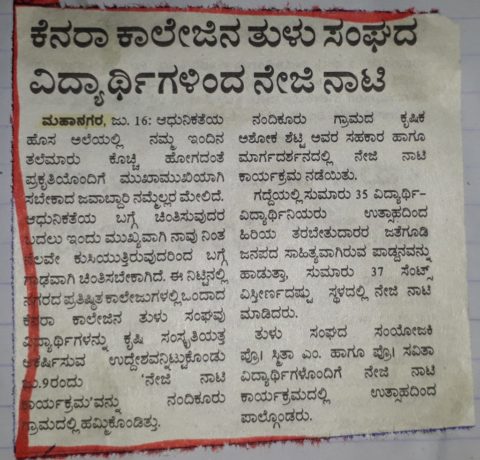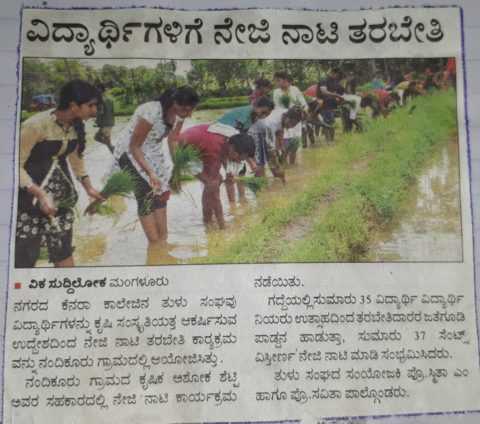On July 9, 2017, a group of students from Tulu Sangha of Canara College, Mangaluru actively took part in a training programme “Neji Naati”. In the time of alienation from traditional occupation, predominantly apparent in coastal districts of Karnataka, where the younger generation drawn by the sense of prestige and glittering western lifestyle, Tulu Sangha of the college aimed at making students learn cultivation process. As a mark of this, students visited Nandikoor village to know how cultivation was done directly.
Members of Tulu Sangha as well as faculty Conveners, who accompanied students, were directly introduced to the method of planting seedlings with the purpose to get hand–on experience of cultivating rice. Students planted paddy seedlings in about an acre of paddy field as per traditional method. Landlord Mr. Ashok Shetty, one of the successful cultivators of the village, explained students the different stages of rice cultivation.
Although there were initial hiccups for the students, as time passed they began to plant the seedlings freely. The students found pleasure in working in slushy field as they were not worried about their clothes and bodies were getting muddy. The experience seemed to encompass them with a feeling of joy.
Most of the students acknowledged that it was their first experience in a paddy field and they felt proud about the native culture and its heritage. Students shared their experience with happiness and they said that they love agriculture. Instructor Mr. Ashok Shetty was delighted to see enthusiastic students and cautioned them not to develop a sense of aversion towards agriculture. He said that paddy cultivation had been witnessing a marked decline year by year, a development that should cause for concern for the country. 35 students gained practical knowledge about the method of planting seedlings by this training program.
Mrs. Smitha M. and Mrs. Savitha, Staff Conveners of Tulu Sangha, expressed happiness at witnessing love of farming among the members of Tulu Sangha.
Report by ,
Mrs. Smitha M.







